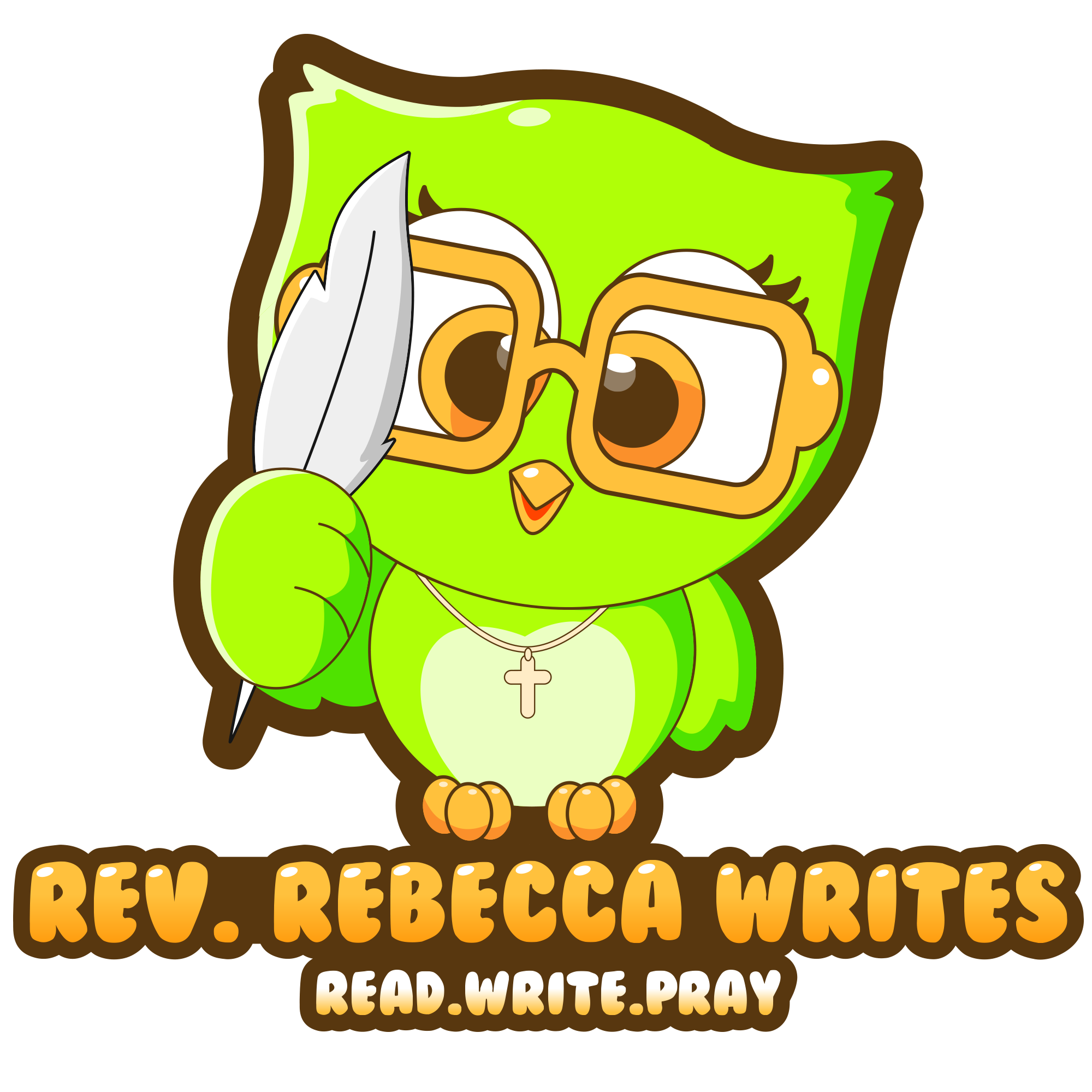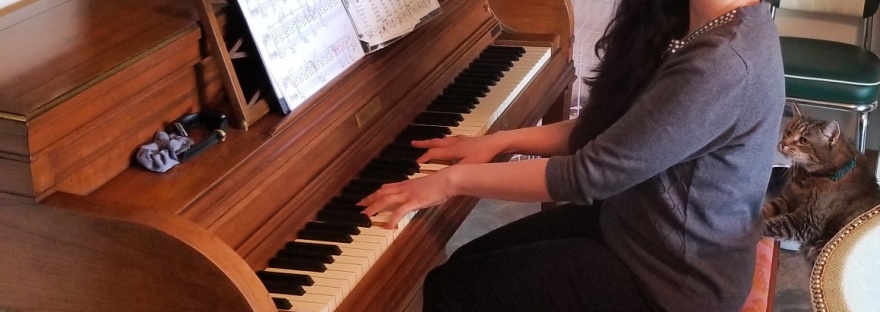Subtitle: Piano lessons taught me about self-reliance, perseverance, and life!
Note: This piece was written in response to the Pennsylvania Council of the Blind’s Prompt, “Self-Reliance.”
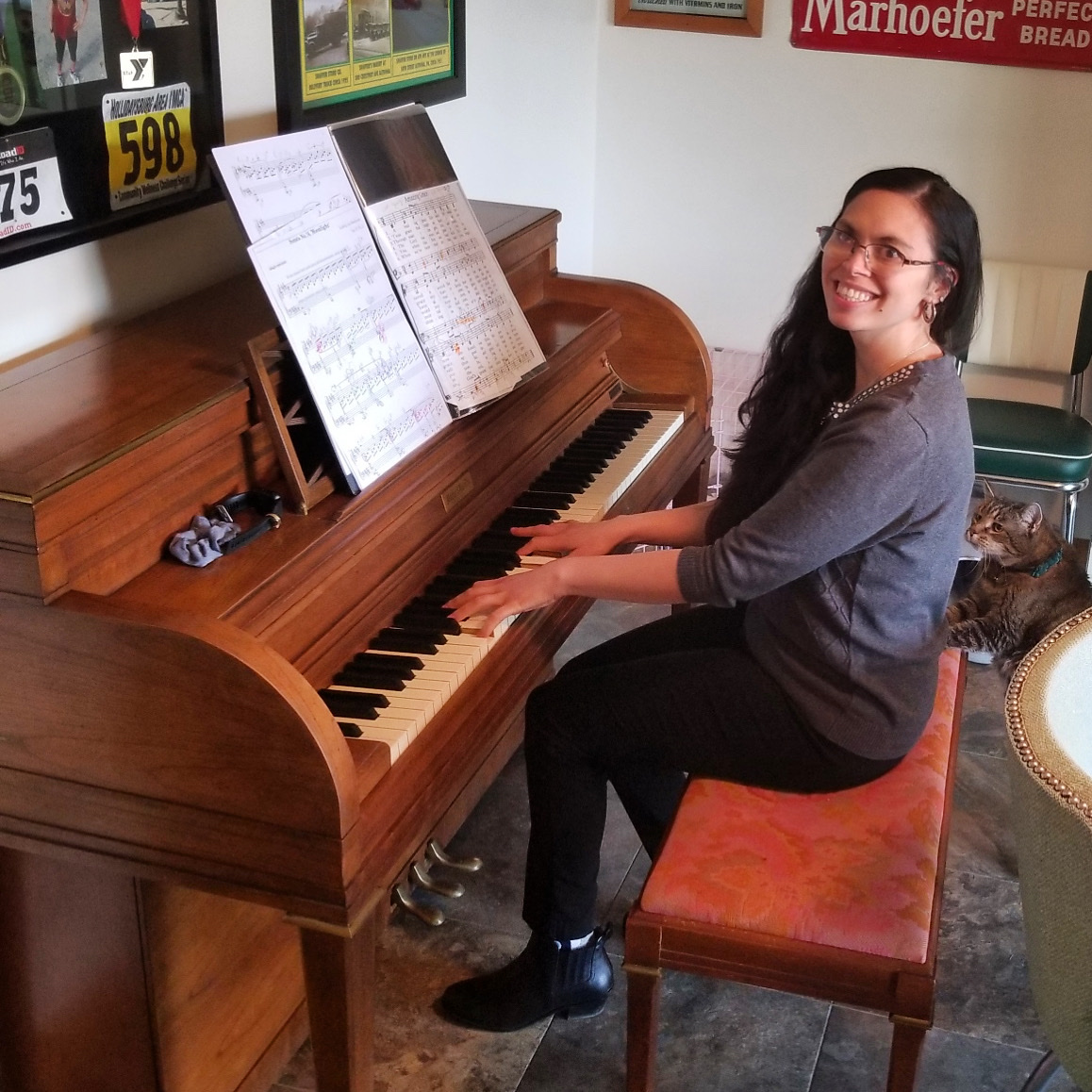
Introduction:
I remember the first time I ever saw a concert pianist. His name was Andre Watts and he was on an episode of Mr. Rogers’s Neighborhood. I was completely enthralled by the sound. I strained my eyes to see his long fingers dance across the keyboard and moved so close to the television screen that my nose almost touched the glass.
As soon as the episode was over, I rushed to tell my grandmother about the amazing thing I had just experienced. I had never heard such music before. I didn’t grow up in a musical household and none of my family played an instrument.
“Grandma!” I exclaimed. “Can I take piano lessons?”
Her initial reaction was laughter, but when she saw my hurt expressions he responded, “Oh, I’m sorry, dear. I didn’t realize that you were serious. Piano lessons are expensive. I don’t think we can afford it. But you’ll have to ask your mother.”
I waited anxiously all day for my mother to return home from work. I was raised in a single parent home and my mother worked long hours as a nurse at the hospital to support our little family. When I told her about my newfound desire to take piano lessons, she tried to reason with me. “I don’t even know where we would put a piano,” she said. “Why don’t you wait a while and see if you really want to learn? If you still want to learn, we can talk about it when you’re older.”
At the time I was disappointed, but I could understand my mother’s reasoning. Many years later, I finally got the opportunity to take piano lessons. My hours on the bench in front of the keyboard taught me many important life lessons about self-reliance, preservice, and finding your purpose.
1. Practice Makes Progress!
I waited for more than a decade before I finally got the opportunity to take my first piano lesson. When I was sixteen years old, I received an electronic keyboar for Christmas. It was only six octaves and the keys weren’t weighted, but I loved that little keyboard with all my heart. In the end, it worked out for the best that I didn’t have a real piano. I quickly realized that I needed more practice than other beginning students.
Although I could already read the treble clef since I had learned to play the flute in elementary school, I couldn’t just open up a piece of music and “sight read” it without practicing. At first, I was disheartened because this is a valuable skill that many musicians have. However, I quickly learned that what I lacked in natural ability I could make up for with practice.
Eventually, I saw progress. By the time I was eighteen I was able to play some simple hymns and early classical pieces. I was no concert pianist by any stretch of the imagination, but I had learned enough to read from a basic lead sheet and play for my own enjoyment.
The hardest part of practicing is making the time to sit down and do it. Life is busy and there always seems to be something else that needs to be done. You can have the greatest piano teacher in all the world, but they can’t do the work for you. You have to be the one to sit down and put in the time.
Do you love to write? Try writing just one paragraph a day! Do you want to learn to knit? Practice for fifteen minutes every evening and see how far you get. Your results will probably surprise you!
2. Learn what adaptations work for you.
Although I loved music and made practicing a priority, I struggled to read printed sheet music. My nystagmus caused the notes to swim on the page in front of me and my eyes wouldn’t stay focused. I struggled to read the small print in my lesson books.
Through a process of trial and error, I learned what adaptations worked for me. I wish that I would have had another friend who was a visually impaired musician who could have offered me advice. Although I knew musicians who were completely blind and could read braille music, I did not know any other musicians with low vision. The following tips and tricks worked for me. Perhaps you might find them helpful as well:
—Large print music and a binder that holds 11”x17” paper: I take the sheet music that I am working on to a local copy shop where I ask them to enlarge it “as big as possible” on paper that is eleven by seventeen inches. Ideally, I like my sheet music to be at least one hundred and twenty percent larger than normal print. I then take this music and put it into a binder that holds 11×17 paper.
—Good lighting makes all the difference. Several years ago, my husband got annoyed with me taking all the standing lamps and placing them strategically around the piano. He went to Home Depot and found a strip of three lamps that have super bright bulbs and can be tilted in any direction. He mounted them over the electronic piano I use to practice and it’s made it much easier to read my large print music.
—I trust my mind and my ears more than I trust my eyes. Learning basic music theory has been a huge help to me. If I can understand the structure of a piece, I can learn it more quickly. I also like to listen to lots of different recordings of a piece. That way if I’m having a bad vision day, I can practice the sections that I have committed to memory.
—Find a knowledgeable and patient mentor or teacher: Playing the piano is complicated and it takes everything from proper posture to correct finger technique. I need to be able to touch a mentor’s hands or have them tell me what finger numbers would work best for a tricky passage. I’m so grateful for the piano teachers who have taken time to share their knowledge with me!
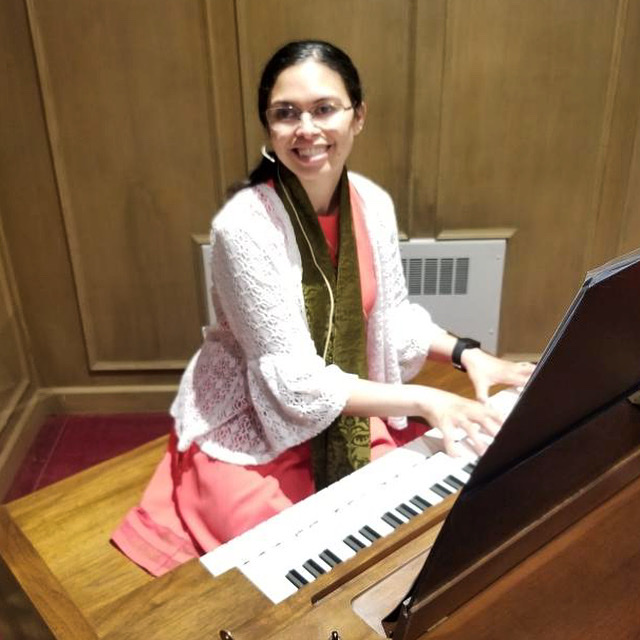
3. Remember your “Why?”
I love to make music, but I get terrible stage fright. I prefer to make music in the privacy of my own home. But I learned an incredibly important lesson this summer.
I serve two churches as a full-time pastor and the second Sunday in August was scheduled to be our biggest Sunday of the summer. It was “Vacation Bible School Sunday,” and the children were going to perform a play, sing some songs, and share what they learned during our summer program. After the service there was going to be a big luncheon. I wanted it to be a happy Sunday for everyone, especially the little ones. But there was one huge problem: all of our normal musicians were unavailable! We were anticipating having lots of guests and our regular pianist had a commitment out of town, our praise team wasn’t feeling well, and I couldn’t find anyone else to play the piano. I decided that I would have to play for the service since we couldn’t find another musician.
It was a hot and beautiful Sunday morning. Despite the air conditioning in the sanctuary, I could feel that my palms were beginning to sweat. After the opening prayers, I sat down on the bench and I was so nervous that my hands were shaking. I was glad I couldn’t see all the people gathered in the congregation. I took a deep breath and said a little prayer. Then I asked myself the following questions:
What was the point of all my hours of practice if I couldn’t play a few hymns when it really mattered? What was the point of all my hard work if I couldn’t share my joy with others? Most importantly, WHY was I making music in the first place?
I felt a sense of calm wash over me. I wasn’t trying to be a concert pianist or a rockstar. I wasn’t trying to prove anything. I just wanted to serve God and make sure that the children and their families had a positive experience on this special Sunday.
Although I made a few mistakes, I managed to keep going. Everything turned out fine and I’m happy to report that my performance was entirely unremarkable. I will not be debuting at Carnegie Hall any time soon, but I am a perfectly average church pianist. And deep down in my heart of hearts, that’s all I ever really wanted: the joy of being able to make something beautiful that touched my soul and share that beauty with others. I’m glad I could share those old beloved hymns that Sunday morning.
Even if you aren’t a religious person, I encourage you to take some time to ask yourself the big questions. What gives you joy in life? When you get to your final days, is there anything you’ll regret not trying? People with disabilities can do anything anybody else can do—we just sometimes have to work a little harder and do things a little differently. In the end, it doesn’t matter if we are the best or the most talented. It matters that we tried. Don’t let fear of failure stop you.
In conclusion, when it comes to my own piano journey. I don’t regret my failures. I don’t regret the wrong notes or the times I’ve crashed and burned during a recital. That was all just part of the learning process. Instead, I would regret never having learned to play.
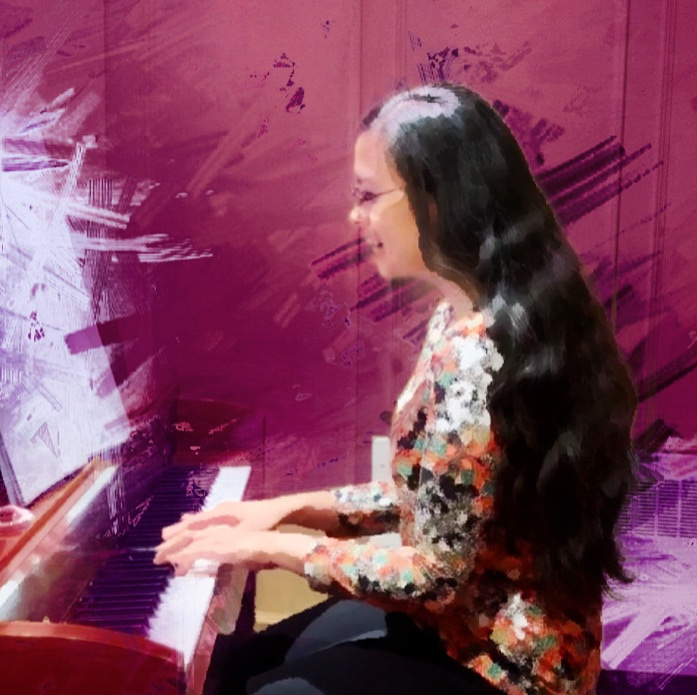
About the Author: Rev. Rebecca L. Holland is a visually impaired Filipino-American pastor serving full time in the United Methodist Church. She serves two churches in Central Pennsylvania. Her most recent book, Hope for the Broken: Using Writing to Find God’s Grace, is currently available from Touch Point Faith.

